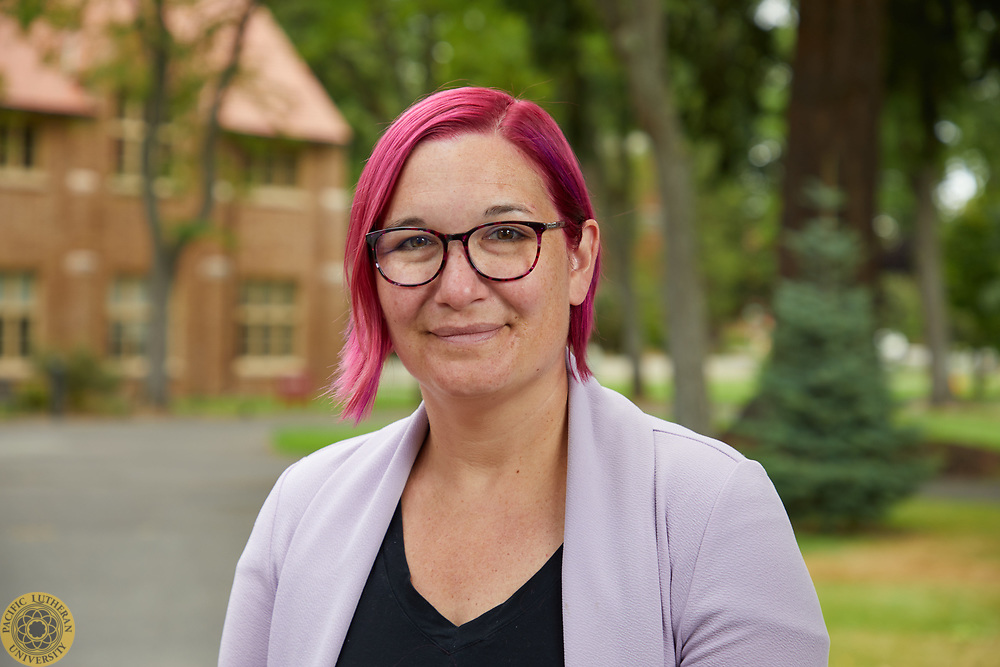Page 259 • (12,621 results in 0.078 seconds)
-
types of classroom activities occurring in a science classroom. This tool can quickly and inexpensively measure the extent to which students are asked to work in groups, think independently, and actively engage in the learning process during class time. DART can take classroom recordings and with ~90% accuracy identify if and when a single voice (e.g., lecture), multiple voices (e.g., small group work), or no voices (e.g., silent thinking or writing) are occurring throughout a class session. PLU
-
women involved in the economics department. After one year of school she will join the Peace Corps to fulfill her internship requirement for her degree. Taylor Brunstad, 2015Taylor is currently an assistant coach at Olympia Area Rowing where she mainly coaches the novice high school boys team and also coaches an adult learn to row program. In the future she wants to pursue a career in behavioral economics in either the public or private sector after completing a graduate program. Marguerite Clemens
-

Research CHEM 420: Instrumental Analysis CHEM 487: Inorganic Synthesis CHEM 499: Capstone NSCI 350: STEM Education Partnership WRIT 101 – A writing course for students during their first semester at PLU. Dr. Munro taught WRIT 101: Writing and the Scientific Method in Fall 2017 for students in the STEM dorm and WRIT 101: Writing and the Scientific Method in Fall 2021. Selected Publications Food Chemistry: An Asynchronous Course Designed with Hands-On Experiments for Undergraduate General Education
Area of Emphasis/Expertise -

: Physical Chemistry Lab CHEM 410: Introduction to Research CHEM 420: Instrumental Analysis CHEM 487: Inorganic Synthesis CHEM 499: Capstone NSCI 350: STEM Education Partnership WRIT 101 – A writing course for students during their first semester at PLU. Dr. Munro taught WRIT 101: Writing and the Scientific Method in Fall 2017 for students in the STEM dorm and WRIT 101: Writing and the Scientific Method in Fall 2021. Selected Publications Food Chemistry: An Asynchronous Course Designed with Hands-On
Area of Emphasis/Expertise -
earning a B.A. (cum laude) and an M.A. from California State University, Chico. I earned my Ph.D. in political science from Washington State University under the supervision of Professor Nicholas P. Lovrich. I am currently an Associate Professor of Political Science at Pacific Lutheran University specializing in American government, public policy, and race and politics. I am the author of the book Everyday Injustice: Latino Professionals and Racism (Rowman and Littlefield, Inc. 2011), which won the
-
describe what they did to learn (how they learned) and what they learned. Personal reflections. Usually gathered after a learning activity or whole course, these can be generated in writing, class discussions, online exchanges, learning portfolios, or even in SGIDs (Small Group Instructional Diagnosis). Learning portfolios Performance in problem-based learning CaringIn this kind of learning, you are trying to either get students to care about something new or in a new way, or to learn how to reflect on
-
can integrate environmental awareness and culturally responsive pedagogies to our engagements with Austen in the classroom and the digital public sphere. Madeline Scully received a MSc in Gender, Peace and Security from the London School of Economics and Politic Science in 2021. She graduated from Pacific Lutheran University in 2019 with a double major in English Literature and Global Studies (International Affairs emphasis) and a double minor in French and Women’s and Gender Studies. She has long
-
other half reserved for OR trips. By making bikes available and providing a map of bike-able roads and trails in the area, Pfaff hopes to increase the number of students, faculty and staff who regularly ride bikes. “It’s a more sustainable way of traveling,” Pfaff said. Plus, there are the added benefits of getting some exercise and saving money on gas, he added. An English writing and environmental studies double major, Pfaff was moved to get involved in PLU’s sustainability efforts after taking a
-
Literacy has surveyed almost 21,000 students from community, public, and private colleges and universities in the US. Their findings show clear patterns in how students engage with information: Eighty percent of students reported having overwhelming difficulties with getting started on research assignments and determining the nature and scope of what their instructors required of them. Two-thirds of college students felt that defining a topic is a difficult task. Most students use risk-averse research
-

the panel. Some professors are also integrating the book into their curriculum. Lisa Marcus, associate professor of English, will again be teaching the book in her Writing 101 seminar on “Banned Books.” She wants students to recognize that Urrea’s book has been banned in Arizona as part of a push to suppress ethnic studies, particularly works that address Mexican-American history and experience. Marcus stresses that beyond the story and relatability of the characters, it is important to think
Do you have any feedback for us? If so, feel free to use our Feedback Form.


